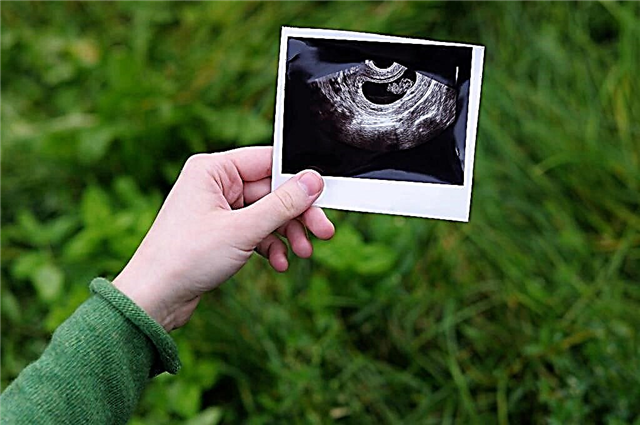
Heartburn is a very unpleasant symptom that is more common in adults. Sometimes a feeling of strong and even painful burning, coupled with belching, can ruin a family dinner, a festive banquet, or any celebration.
Feeling heartburn, everyone begins to feverishly remember what exactly he ate before, what he drank, but sometimes the reason should be sought not in the diet, but in his own thoughts and feelings. In this article, we will discuss the psychosomatic causes of heartburn.

General information
Heartburn is a popular name that only reflects the essence of sensations. Gastric juice is thrown from the stomach into the esophagus. Sulfuric acid in its composition, peptides, bile pigments irritate the mucous membranes, so there is a burning sensation and pain behind the sternum in the direction from the stomach upwards. In medicine, there is another name for the symptom - gastroesophageal reflux.
It should be noted that heartburn regularly suffers from 35% to half of the entire population of the planet. Frequent reflux is considered heartburn, which makes itself felt at least once a week. The more often a person suffers from heartburn, the more reason doctors have to say that the patient has an insufficiency of the closure function of the esophageal sphincter. At the same time, no one says that a person is sick with something. Heartburn is a condition that may well be present in perfectly healthy people. If the examination does not show any deviations from the norms, we can safely talk about psychosomatic heartburn (found in 85% of all cases of frequent gastroesophageal reflux).
It should be noted that in 1999 a separate term was created for this case - gastroesophageal reflux disease. With her, heartburn is the only symptom. Sometimes heartburn is a symptom of another disease, for example, an esophageal ulcer, a precancerous condition of the esophagus, adenocarcinoma.
It is believed that smoking, drinking coffee, fatty foods and citrus fruits, very hot foods or alcohol are especially "favored" for burning and pain. Often, the symptom occurs after overeating, especially at night.

Psychosomatic causes
Psychosomatics allows you to find deeper, at first glance imperceptible reasons that determine the reflux of gastric juice into the esophagus. The stomach and esophagus are the organs that allow a person to eat. But food is not only in the gastronomic sense, but also in the spiritual, emotional, informational. Normal work of the esophagus and stomach is possible when a person with a positive and willingly accepts all information coming from the outside, quickly disassembles it into necessary and unnecessary, important and secondary. If a person does not want to accept something new, if he denies the need for incoming information for himself, or, conversely, accepts everything, “eats indiscriminately,” then this greatly loads his stomach and leads to instability of the sphincter.
But these are only predisposing factors. Fear is considered the true psychosomatic cause of heartburn. Not just a fear of spiders or darkness, but persistent, strong, unrelenting fear, which is most often associated with the outside world - with a feeling of defenselessness, with the fear of being offended, with fear of future events. The second common reason for frequent manifestations of reflux disease is constant irritation, accumulation of anger, intolerance towards someone or something, again in the outside world. About a bored job or an annoying person they say that he "causes heartburn", "tired of heartburn." The mechanism of development of psychosomatic heartburn is quite simple. Fear puts all organs and systems on alert, the stomach begins to produce more gastric juice, and the esophagus, like all the muscles in a person who is afraid or very irritated, tense, is in a certain tone.
Thus, people who are more susceptible to frequent pain and burning sensation above the epigastric region are:
- often experience stress, fear, take events too close to their hearts or refuse to accept them at all, violently deny;
- people who are irritated by someone or something, who are forced to constantly contact the "culprit" of their irritation;
- people who badly "digest" what is happening, people.

Researchers' opinion
Most often, specialists in psychosomatics study the stomach and its diseases in a complex manner, but heartburn, due to its widespread prevalence, has a special place in the works of the most famous authors. Canadian writer and psychologist Liz Burbo argues that heartburn is more often characteristic of very indecisive people who, in their hearts, would like to take control of their own lives, but in practice cannot even take control of their own feelings (heartburn does not obey volitional efforts, it occurs suddenly and so but suddenly ends).
Liz Burbo gives certain recommendations to people who would like to get rid of psychogenic heartburn: she recommends learning to perceive the world more harmoniously, be more tolerant and benevolent, and not be annoyed over trifles.
Psychotherapist Valery Sinelnikov points out that the key to recovery must be sought in the psychology of the disease - a positive attitude towards the outside world, people, events and information will help completely eliminate fears, and with them the painful symptom will go away. In men, heartburn, according to the doctor, may also be associated with wounded male pride.

Louise Hay wrote that heartburn is a condition that requires serious and great work on your inner world. It is necessary to avoid prolonged, chronic stress, as well as resentment and anger at someone, and then the state of the stomach and esophagus will surely return to normal.
Causes of the symptom during pregnancy
Very often, heartburn first starts during pregnancy and stops after childbirth. Women look for a reason in their diet, calm themselves with physiological grounds (the uterus presses on the stomach, the juice is thrown into the esophagus). Of course, the physiology in reflux of pregnant women is quite a lot, but not all expectant mothers have such a symptom, although the uterus grows and presses on the internal organs of absolutely everyone.
The psychosomatics of heartburn in expectant mothers is also closely related to fears: fear of birth pain, fear of giving birth to a sick baby, fear of being left alone, losing the location and support of her husband, losing her job, fear of not coping with childcare. Free female psychologists work in antenatal clinics. Therefore, it will not be at all superfluous to turn to such a specialist so that he can help eliminate the fears and experiences that torment a woman. Together with them, the symptoms of burning and pain in the esophagus will go away.
It is important to overcome these fears as early as possible. It has been proven that a calm, confident woman has an easier pregnancy, less painful childbirth, and stronger and healthier babies. So why do most pregnant women prefer all of these benefits to indulging their own fears? Because in Russia it is already a tradition to be pregnant and be afraid of childbirth. After all, the conversations of two pregnant women are almost always the same - "I'm scared, I'm scared, horror, as I'm afraid, pathologies, complications" and so on. Muscle clamps occur at the cellular level in a variety of muscle groups, including the esophagus, and the muscles of the cervix.
The best recipe for heartburn is not a spoonful of soda, not mineral water on an empty stomach, not a fashionable expensive medicine, which, according to the manufacturers, “relieves a symptom in five minutes,” but putting in order your thoughts and feelings. Men and women with a positive outlook on events, people, phenomena and themselves in this world usually do not have a stomach ache.




